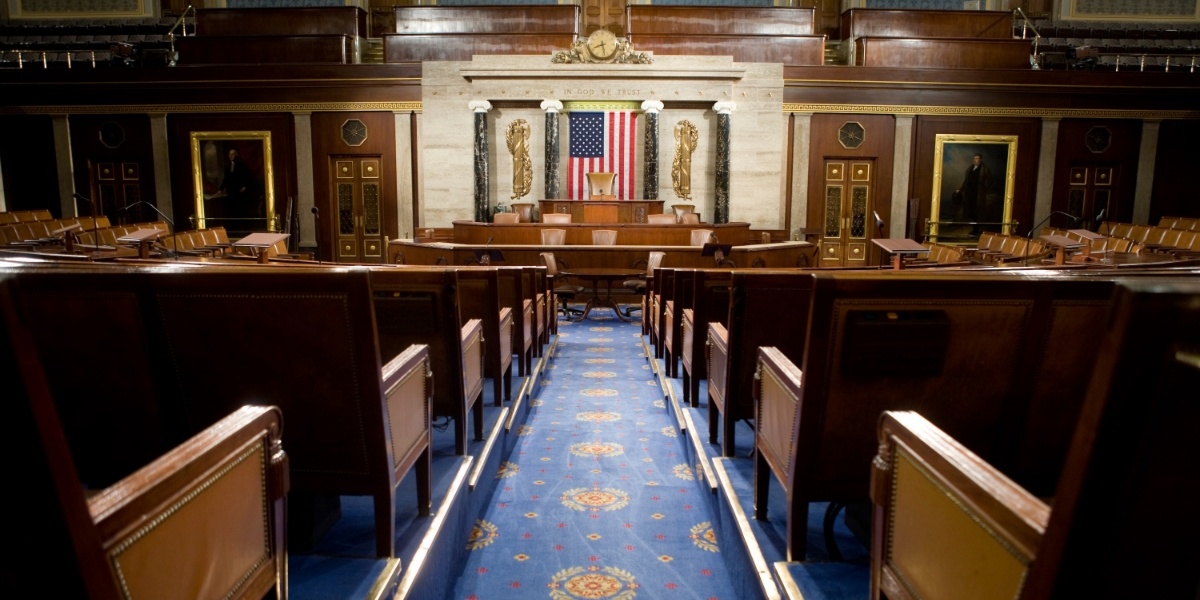Congress: Shirking its Basic Function
Share
By Hillsdale College Online Courses May 11, 2015
In his “Vices of the Political System of the United States,” Madison explains that proper laws “mark with precision the duties of those who are to obey them.” Today, Congress continually fails to produce precise, understandable legislation. Instead it proclaims broad policy statements (e.g., there shall be clean air, affordable healthcare, or a sound financial system) and leaves lawmaking to executive agencies. As Congress has abdicated more and more of its constitutional legislative power to unelected bureaucrats, the laws under which citizens live have increased dramatically in number and mutability. In Federalist 62, Publius writes that such a policy “poisons the blessing of liberty itself.”
The following video is a clip from Q&A 9 of Hillsdale’s online course, “Constitution 101,” featuring Kevin Portteus, Associate Professor of Politics, and John J. Miller, Director of the Dow Journalism Program.
Transcript:
John Miller:
You say, in your lecture, that the progressives had laid out some possibly clear legislative goals. You say, "We want clean air. We want safe workplaces. We want quality, affordable healthcare." That all sounds pretty good to me. What's wrong with a Congress laying out these principles as goals?
Kevin Portteus:
There's nothing wrong with it. Congress announced policies like that throughout its history. However, in most cases, and of course, there are exceptions where the law is too vague in the 19th century or in the 18th century, but as a rule, they then backed that up with, "Okay, we want X. Here are the rules, procedures, and policies to get X." What you find when you look at modern legislation, despite the fact that it's 2,000-2,500 pages, is that, for the most part, it doesn't do that.
One of the big mistakes politically that the drafters of the Affordable Care Act made was to do that, in the case of the individual mandate. That became the thing initially, prior to implementation, that people were fighting about, was the constitutionality, the legality of the individual mandate. They actually made law in that narrow instance. They said, "This is what you're going to have to do in order to be in compliance with the law. If you don't follow it, there's going to be X penalty." That provided the grounds for the vast majority of the political and legal fights over Obamacare during the early months, both before and after passage.
What Congress typically does now is to declare what the courts have called an intelligible principle, that is to say, a goal that we want to see achieved. It has to be sufficiently clear, at least the way that the Supreme Court has laid it out over time, that a reviewing court can look at the statute and know what Congress was trying to do. Then from there, they can evaluate whether or not the actions of the agency comport with that stated goal, they are somehow reasonably or rationally related to that stated goal.
John Miller:
All that sounds entirely reasonable, when you put it that way.
Kevin Portteus:
Right. That's what goes on. The problem is that Congress is not performing its basic function. In Federalist 75, Hamilton says that the function of Congress, the legislative power, is the power to make rules for the regulation of society. When you think about it that way, or, in Madison's terms, from Vices of the Political System of the United States, “to mark with precision the duties of those who are to obey them,” or, from Federalist 62, “law is defined to be a rule of action.”
How is "We want clean air" or "We want quality, affordable healthcare," how is that a rule of action or a rule for the regulation of society that individuals under the law can follow? It isn't. Congress declares a very broad goal, and then the citizens, whether they're business owners, or healthcare providers, or healthcare consumers, or whatever, individual citizens have to wait for some other entity to make rules for the regulation of society. In other words, Congress is not performing its core function under the Constitution. They're doing something else.

